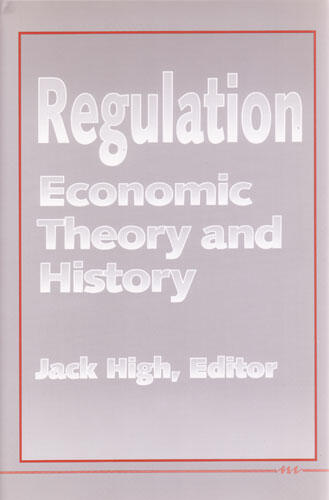Regulation
Economic Theory and History
Links the history and economics of regulation
Description
Is government regulation of industry undertaken in the interest of the public, or is it controlled by big business for big business? In Regulation, Jack High draws together six original essays on the theory and history of regulatory activity in the United States in a highly readable book that explores who benefits from regulation---and how.
Regulation makes the case for an interdisciplinary dialogue between economists and historians of regulation. The contributing scholars examine some of the most economically important industries in the country---airlines, utilities, telecommunications, sports, and food---and offer suggestive insights about intraindustry conflict, the interdependence of regulation and technology, the relationship of regulation to industry structure, and the "bureaucratic entrepreneurship" of regulators themselves. Since it is applied to real-world regulatory episodes, the economic theory presented is relevant and concrete; and the history, guided by the logic of theory, has direction and focus.
High introduces the volume with a broad survey of ideas about regulation since the turn of this century, marshalling the thoughts not only of academicians but of industry leaders such as William Randolph Hearst and journalists such as Joseph Pulitzer and H. L. Mencken. He traces parallel developments in the work of economists and historians of regulation throughout the twentieth century and points toward areas that need further interdisciplinary exploration.
Regulation's avoidance of discipline-specific jargon will make it accessible and appealing to a wide audience, from government and academic specialists in regulation to more general readers. All will be treated to a more complete and informed understanding of trends and forces in American regulatory policy.

